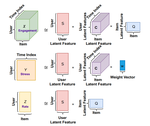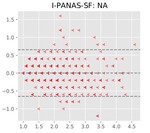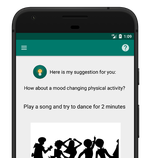Recommendations as Challenges: Estimating Required Effort and User Ability for Health Behavior Change Recommendations (to appear)
Recommender Systems use implicit and explicit user feedback to recommend desired products or items online. When the recommendation item …
STRETCH: Stress and Behavior Modeling with Tensor Decomposition of Heterogeneous Data
Stress level modeling and predictions are essential in recommending activities and interventions to individuals. While successful …
Integrating Behavior Change and Persuasive Design Theories into an Example Mobile Health Recommender System
Integrating behavior change theories and persuasive design principals into health recommender systems.
Towards a User Integration Framework for Personal HealthDecision Support and Recommender Systems
A multifaceted user integration framework in personal health-related DSS and RS. This framework, with three main components:Empower, Encourage, and Engage.
Mobile Mood Tracking: An Investigation of Concise and Adaptive Measurement Instruments
Investigation of a short and adaptive mood measurement using smartphones that addresses both assessment quality and app quality
Beyond Algorithmic Fairness in Recommender Systems
This paper highlights the non-algorithmic viewpoint on the fairness in these systems using an evaluation methodology that can be used to assess the fairness of a recommender system perceived by its users.
How can they know that? A study of factors affecting the creepiness of recommendations
RS should consider users’ feelings, expectations, and reactions that result from being shown personalized recommendations. This paper investigates the creepiness of recommendations using an online experiment in three domains.
Rating-Based Preference Elicitation for Recommendation of Stress Intervention
This paper develops a better understanding of the preference elicitation by studying the criteria that users consider when they rate a health promotion recommendation, and offers a design solution as a functional feedback model for mobile health applications.
Multi-Criteria Rating-Based Preference Elicitation in Health Recommender Systems
In this paper, we investigate the criteria for the rating of a health promotion recommendation using an online survey. Drawing on both the relevant literature and the users’ responses, we came up with a list of 33 criteria that users consider when they rate a health promotion recommendation.
Towards Health (Aware) Recommender Systems
In this short paper, we look one step ahead and show the progress made towards RS helping users find personalized, complex medical interventions or support them with preventive healthcare measures.










